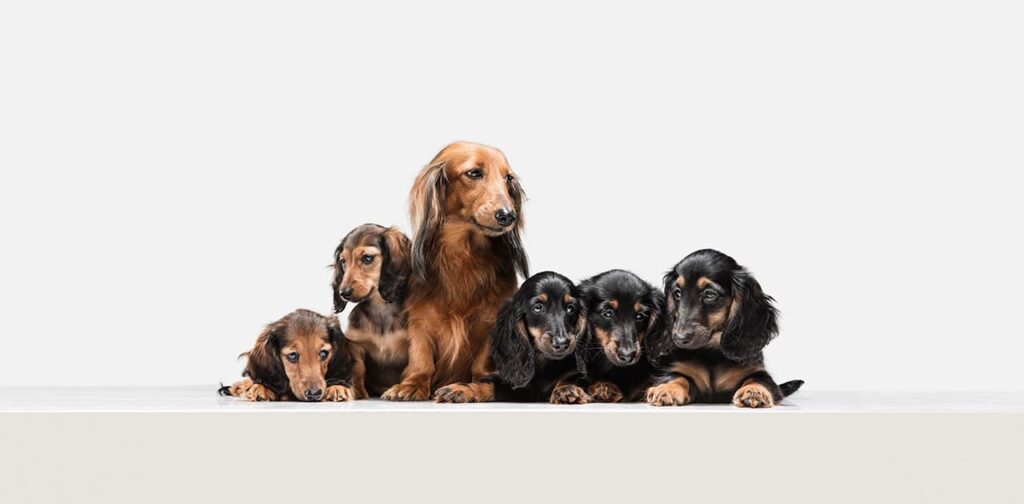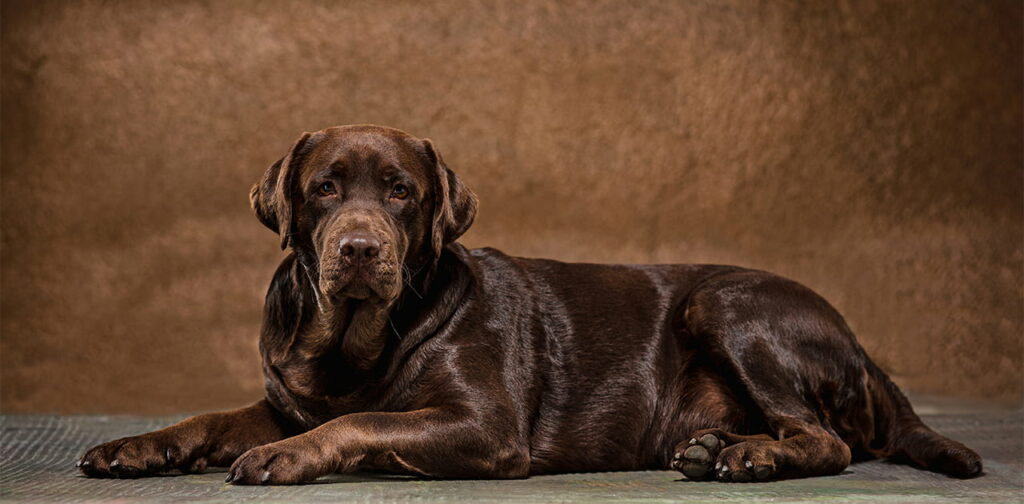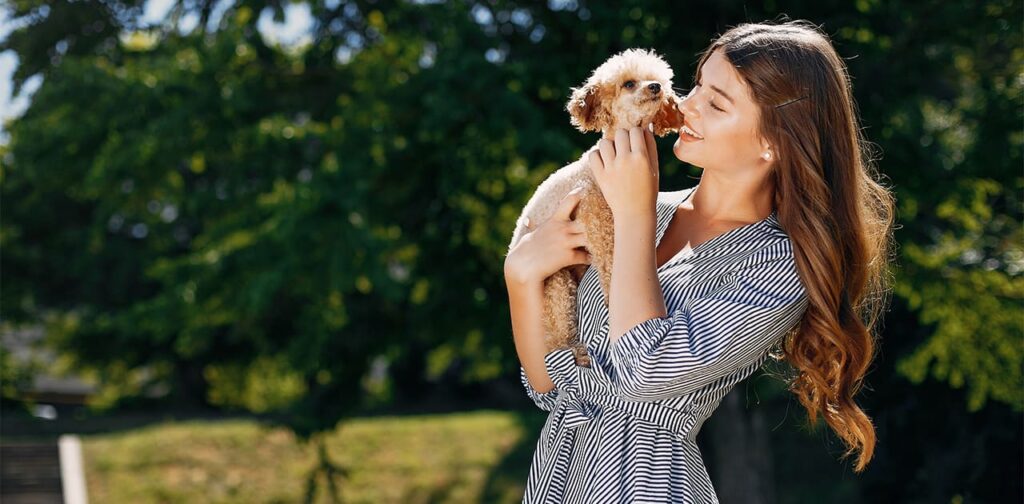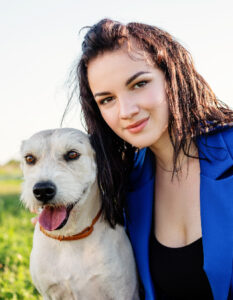Seeing your puppy going through many changes throughout their lives can be confusing. Our little friends go through many changes throughout their journey of puppyhood.
It is completely ok to be confused with all the stages of their puppy growth and the ultimate tradition to adulthood. But as a puppy parent, it is important for us to know when a puppy turns into a dog.
We may have to make many transitions like shifting to adult food, adult grooming practices, more importantly finding our puppy a mate. To help you through all the confusion and make it simpler for you I have designed the ultimate worksheet to help you understand when is a puppy fully grown.
Take a look at the puppy growth process, factors affecting puppy growth, and some tricks and tips to support your little friend’s optimal growth journey to adulthood.

Understanding a Puppy’s Growth Process
To understand when is a puppy fully grown, you need to first understand the puppy’s growth process and the life stages a puppy goes through throughout the journey of life.
Neonatal stage
To begin with puppy’s neonatal stage, which is the earliest phase of your puppy’s life. This is the time from their birth to the 2nd week of their life. They are very dependent on their mothers for milk, warmth, and comfort.
Accordingly They spend most of their time nursing and sleeping with their siblings. With closed eyes, primary deafness, and limited mobility they are the most vulnerable at this stage.
Transitional stage
After 2 weeks your little puppies will open their eyes and start responding to sound. This transitional period lasts till the 4th week of their lives. They will still be drinking mother’s milk and have a lot of time for sleep and nursing.
The defecating frequency is frequent at this stage. They will also start interacting with their siblings, and develop sensory abilities and basic motor skills.
Socialisation period
The age of 3 to 14 weeks is the socialisation period in your puppy’s socialisation period. It is time for the puppy’s social and emotional development.
It is also time to switch from mother milk to puppy food. As they will gain some ability, they will act curious, explore their environment, and start learning new things. They will now interact with people and animals. This stage is the time for behavioural management training.
As soon as your pup turns 8 weeks old you should start training like obedience training, potty training, leash training, and crate training. Establishing a proper food schedule can also help in the development in a puppy’s growth.
Juvenile stage
As soon as your puppy turns 3 months old they will get much more independent. This stage is marked by the puppy’s increased energy and ability to navigate the world around them.
Puppies will be able to communicate better and move freely around the house. They are well accommodated in their environments. Puppyies can easily interact with people and animals if trained well. They can also easily.
Issues related to disobedience may show up at this age. For instance, excessive barking, biting, chewing, attacking people or animals. It is also the time to tackle such behaviours with proper caution and professional help.

Signs of Physical Maturity in Puppies
You can spot signs of maturity by checking up on only 3 factors. After seeing so many adorable little puppies growing into great dogs over my 7 years of experience as a vet, I have created the ultimate worksheet for investigating when is a puppy fully grown.
Check out the boxes to know if your little friend is not so little anymore.
- Changes in physical a
- Bigger Limbs
- Broader Chest
- Loss of Baby Teeth
- Development of a Set of Permanent Teeth
- Development of a denser, adult coat.
- Defined Body Shape
- An Increase in overall size
- Changes in Behavior
- More Independent Attitude
- Calmer Nature from previous Playfulness
- Consistency in Sleeping Patterns.
- Increase in territorial instinct
- Reduction in eating food
- Overall Obedience in Nature
- Sexual maturity and reproductive capability
- Female puppies enter their first heat cycle.
- Male puppies start mounting behaviour.
- Female puppies attract male attention.
- Male puppies mark territory.
- Behavioural changes related to mating.
When do dogs stop growing?
Your puppy may stop growing right after they reach their maturity state. Although they will indeed keep ageing with time. Dogs typically stop growing between 12 to 18 months of age. However, larger breeds may continue to grow until they are around 2 years old.
Remember this can differ based on each dog themselves as they all are unique in their own ways. It is advisable to meet your vet for an elaborate consultation.

Factors Affecting a Puppy’s Growth
Now that you know “when is a puppy fully grown”, take a look at some key factors that affect a puppy’s growth process.
Puppy’s Breed
Your puppy’s breed can affect their growth rate. Smaller breed puppies grow quicker than larger breed puppies. Whereas a small breed puppy may grow within 6 to 12 months a large breed puppy will take 18 to 24 months to turn into an adult dog.
Gian breeds keep growing for a longer period, 2-3 years. The growth and maturity can also look very different from puppies to puppies due to their breed type. Understanding the mixed breeds may require professional help.
Diet
Having a proper diet is extremely important for your puppy. Your puppy needs to have a well-designed dietary plan to fulfil his unique dietary needs. Puppies often need higher nutrition in comparison to adult dogs. As a puppy, they are still going through mental and physical growth.
If your puppy is not provided enough nutrition for imbalanced nutrition. It can negatively impact your puppies’ growth. Too early transition to adult food can also impact their growth.
Exercise and physical activity
Regular exercises and physical activities can aid in a puppy’s growth. It is important to understand the unique requirements for physical activity in your puppy to ensure they are not lacking enough exercise and physical activity.
However, Puppies from different breeds and ages have different exercise and physical activity requirements. Taking your puppy out on a walk and spending plenty of playtime with them is important for their natural growth.
Health and medical care
Overlooking your puppy’s health and medical care by ensuring regular veterinary checkups is important. Timely consultation, diagnosis, and response to threats neutering or spaying can help your puppy to have a healthy growth experience. You also need to ensure regular grooming to maintain the puppy’s overall well-being.
Mental and Emotional Health
A puppy’s environment and training can have a huge impact on a puppy’s growth. Early socialisation, separation anxiety prevention training, obedience training, and behavioural management can help build a strong relationship between you and your little puppy.
This will help in controlling the stress level and increase the puppy’s confidence level. Spending plenty of time with them contributes to overall emotional well-being.

Tips for taking Care of a Growing Puppy
Here are some tricks and tips to take care of your growing puppy and support the puppy’s growth.
- Maintaining proper nutrition and feeding schedules.
- Feed puppy foods specially formulated for puppies only.
- Choose a puppy food specially formulated for your puppy breed to support your puppy’s unique growth requirement.
- Conduction of behavioural management training and socialisation training.
- Ensure proper hydration.
- Monitor the puppy’s weight, health, and stool regularly.
- Introducing chew toys to help with teething.
- Regular veterinary care consultation and regular check-ups.
- Regular exercise and physical activity through walks and playtimes.
- Ensure regular grooming routine.
- Spend plenty of quality time with your puppy.
- Be consistent in providing support, love, and hold patients.
- Educate yourself about your puppy and their growth requirements.
Conclusion
As of now, you are well equipped with all the knowledge that you need to determine if your puppy has turned into a fully grown adult or not.
However, we advise you to meet a veterinarian for expert opinion. Educating yourself and supporting your puppy’s growth can always help in ensuring their overall physical and cognitive well-being and your little furry friend is in constant need of your love and care no matter if they are a puppy or a dog.
For more information regarding puppy growth and care check out, Best Puppies Food.





